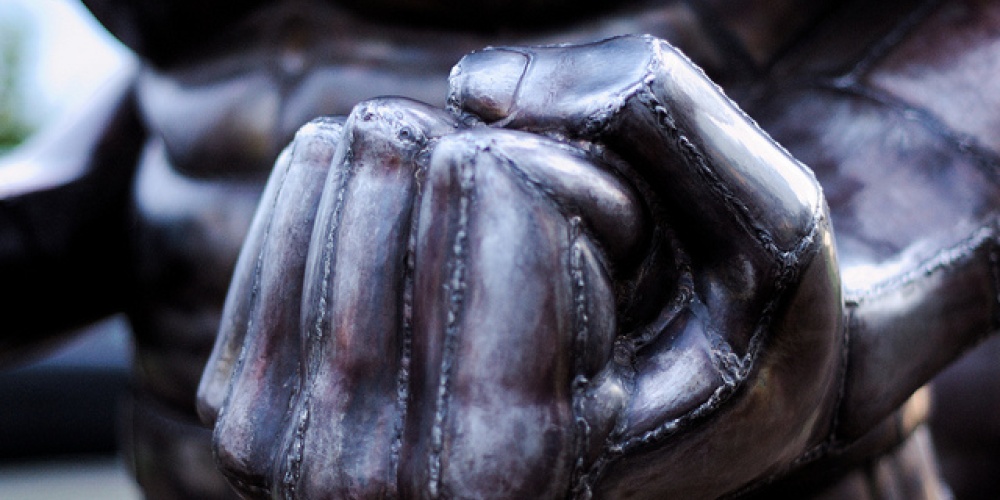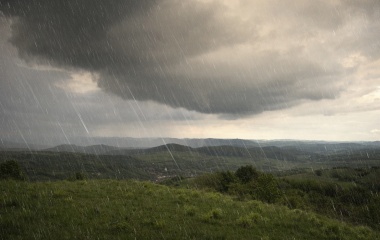
One of the most popular images in our tradition is that of a tree. Its many component parts reflect the diversity of our community. Some, like the roots of the tree, are strongly connected to our way of life and are impervious to any winds that may be blowing above. Others, like the leaves, are hanging on for dear life; and others, like the branches of the tree, fall somewhere in between. A tree offers fruit, shade, beauty, and is good for the environment. Not only is Torah compared to a tree—something we emphasize every time we put the Torah back in the aron—humans themselves are compared to the tree. "For man is the tree of the field" (Devarim 20:19).
"Rava said: A young scholar may be likened to the seeds under a hard clod; once he has sprouted, he soon shoots forth" (Ta'anit 4a). Just like the dour barren tree can, with the blink of an eye, sprout forth in all its beauty, a budding scholar will burst onto the scene when the time is right, sprouting forth Torah to benefit all.
The young are full of enthusiasm and bountiful energy, and tend to see the world in black and white, with few shades of grey. It is this sense that anything is possible that gives them the confidence to try and translate their energy into action. And such plans, while great in theory, may not always be the best policy in practice.
"Rava further said: If a young scholar gets into a rage, it is the Torah that inflames him, as it is said, 'Is not my word like a fire, said the Lord?'". As Rashi explains, the study of Torah "expands one's heart". An expanded heart is a wonderful thing—a good heart being the best quality a person can have (Avot 2:9)--yet one who has an "expanded heart" takes everything to heart. And the toll can be heavy. These people cannot tolerate injustice, corruption, or even plain spiritual laziness. Their idealism may lead to angry outbursts as they seek to implement the ideals of Torah. Thus, Rashi advises, we should judge these young scholars favourably. Their heart is in the right place, even if their actions lack a certain sense of maturity.
While Rava urges us to excuse a young Torah scholar whose heart wins over his head, no such excuse is granted a more experienced scholar. He (or in today's world, she) is expected to ensure that all are exposed to a Torah "whose ways are the ways of pleasantness and all its paths are peace" (Mishlei 3:17). They are to be metunim badin, deliberate in judgment, in a calm and collected matter.
It is not easy to balance the fire of Torah that burns within with the need to be conciliatory. The Talmud continues, "and Rav Ashi said: A Torah scholar who is not as tough as iron is no Torah scholar". Torah is the expression of truth, and one who seeks truth cannot compromise. Like iron, they must be strong and confident. Yet, despite its strength as a material, iron is malleable, allowing it to be formed in many ways. A Torah scholar must be open to re-analyzing and revising his views. It is flexibility where needed that makes one stronger.
Whether a Torah scholar should err on the side of unflinching and uncompromising truth, or flexibility and openness seems to be a dispute relating to the source of this teaching. Rav Ashi, who is the author of the teaching, derives such from the verse, "like hammer that breaks the rock" (Yirmiyahu 23:29). Rav Aba immediately says to him, "You learn it from there? We learn it from here: 'a land, asher avaneha, whose stones are iron' (Devarim 8:9). Do not read avaneha, stones; rather, boneha, its builders, i.e., Torah scholars". While Rav Ashi sees the Torah scholar as the one who can destroy obstacles[1], Rav Aba prefers to focus on the role of Torah scholars as those who build society.
The discussion of the character of a Torah scholar ends with Ravina's comment, "Nonetheless, a person must conduct himself pleasantly". A Talmid Chacham is, first and foremost, a "person" and he must conduct himself as such. Torah must make us more human, not less so.
[1] In ancient times, it was iron that was the primary material for making weapons. And while we may, at times, need to use weapons, those who must are often unable to build a society. Not every general makes a great politician. King David, the great warrior, may have laid the groundwork for the Temple, but he could not built it.



